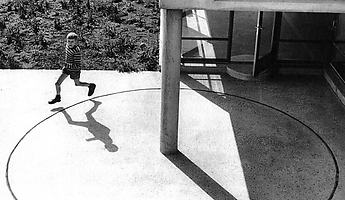Joined by the researchers from Wageningen University & Research and TU Delft, UNSKnowledge hosted an interactive workshop on climate adaptation and health outcomes at the CLICKNL DRIVE Festival held during Dutch Design Week in October 2019.

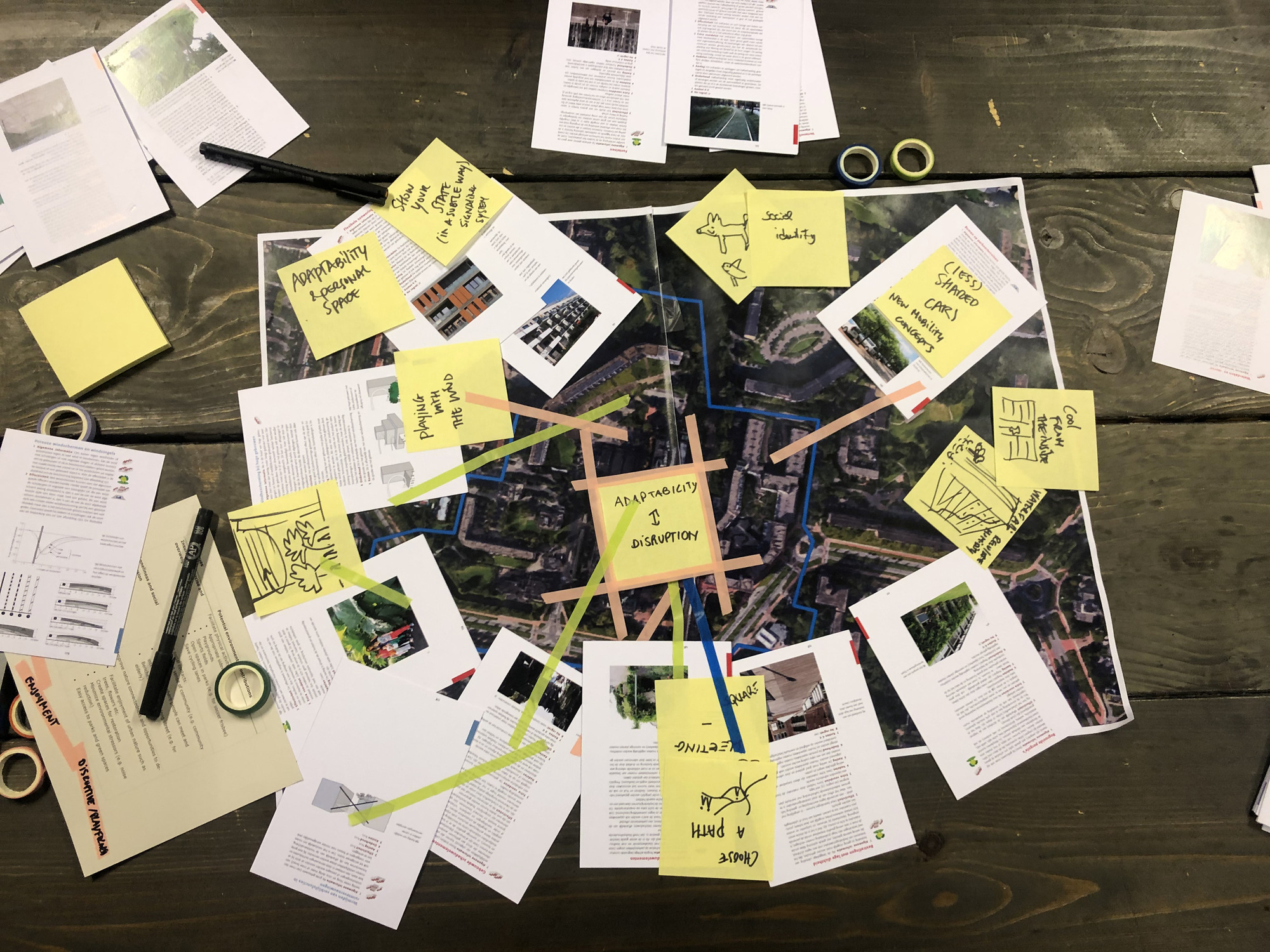
Climate Adaptation and Health Outcomes: Workshop at the CLICKNL Drive Festival 2019
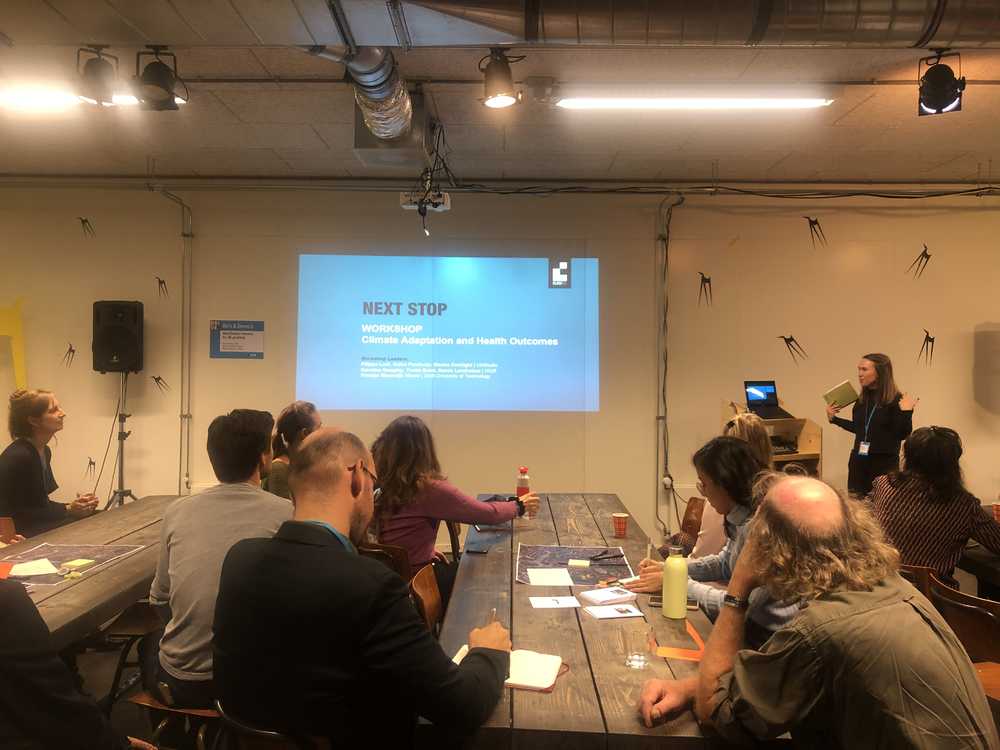
The workshop aimed to introduce the climatic factors at play in urban environments and their myriad effects on health outcomes, and in turn to discuss possible ways to intervene at the community’s advantage. Amongst the wide array of physical climatic measures, the workshop focused on heat and wind, as heat induces stress and reduces mobility, whilst wind discourages walking and cycling encouraging auto use even for short trips when it wouldn’t otherwise be necessary.
To better illustrate the link between living environment and health, participants engaged in an interactive simulation activity, that examined Meerzicht, a socioeconomically disadvantaged neighbourhood in Zoetermeer, between The Hague and Rotterdam. Through this activity, participants had to determine appropriate solutions to the urban scenarios and reflect on potential health implications.
In groups of four, each group received a set of tools consisting of a satellite overview map of Meerzicht, rolls of tape, and a set of cards. Each card included a method of urban intervention and climate adaptation, including propositions of heat regulation and uphold of ventilation in public spaces. With the given examples, our moderators led the participants in a discussion of the advantages and disadvantages of proposing these interventions for certain public areas.
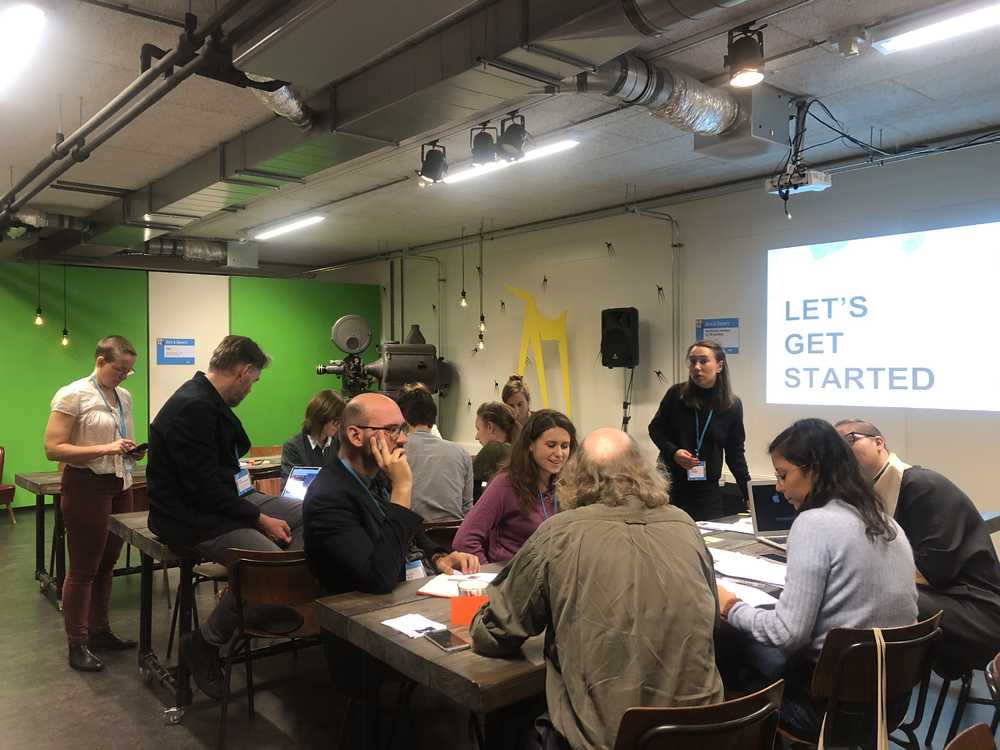
We found that each group honed in on different issues in Meerzicht. One group started off by making distinctions between ‘short term’ and ‘long term’ climate adaptation strategies, and pursued a strategy that coincided more with the long-term vision: creating a New York-style ‘High Line’ of the current NS railway. By burying train tracks underground, the group wagered the elevated green walkway could not only provide a new space for leisure and exercise, but also spur a new sense of belonging in Meerzicht residents.
Another group foregrounded the health outcomes of their interventions and prioritized the need for high quality public spaces in Meerzicht, proposing piazzas with fountains that would create opportunities for social engagement and meanwhile cool the air through water evaporation. Their proposal stressed the need for communal involvement, particularly advocating for inclusive neighbourhood initiatives.
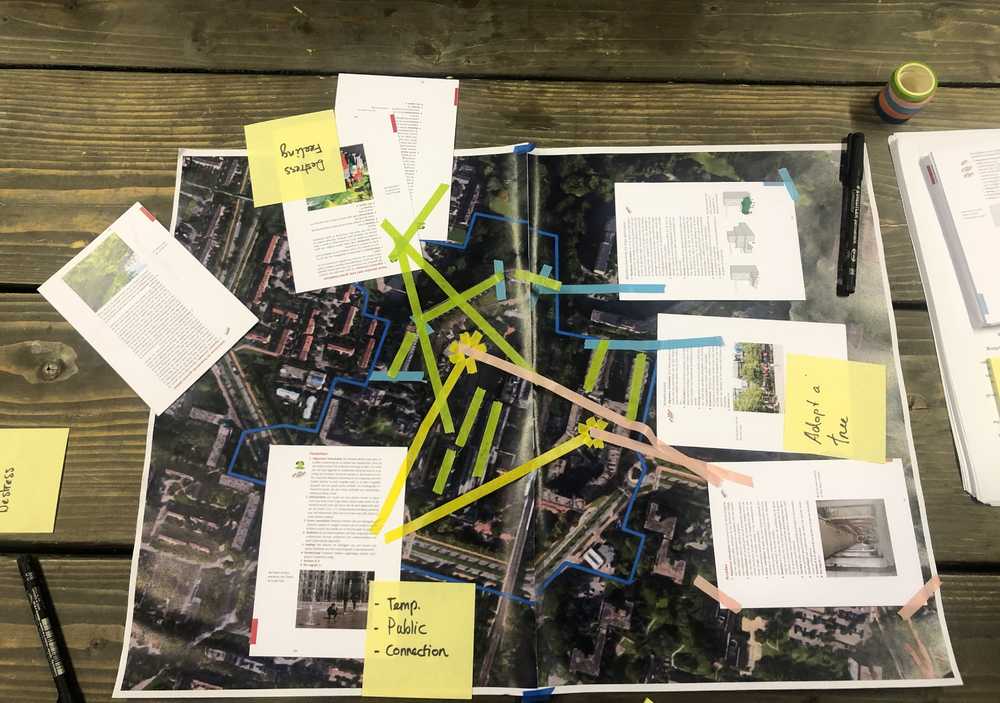
In response to the question: ‘what kind of society do we want to strive for?’ The final group confers from the perspective of playfulness and adaptability, and places a priority in responding to the question ‘what kind of society do we want to strive for?’ The group considered the approach of adaptability through looking at varying climatic conditions and their relation to nature. They conferred that the introduction of new, leafy trees will support both wind dampening and air cooling in the spring and summer, whilst their barren state in the autumn and winter means an additional measure like flexible awnings that also protect from rain, could also be considered.
Despite the tight time constraint, participants were able to come up and successfully deliver ideas that went beyond small scale intervention to tackle climate issues. Together, the groups developed a long-term vision for Meerzicht, a neighbourhood for today’s residents and tomorrow’s generations.
UNStudio Team: Filippo Lodi, Marisa Cortright, Indira Pambudy
Wageningen University & Research: Karolina Doughty, Sanda Lenzholzer, Yvette Buist
TU Delft: Froukje Sleeswijk-Visser

